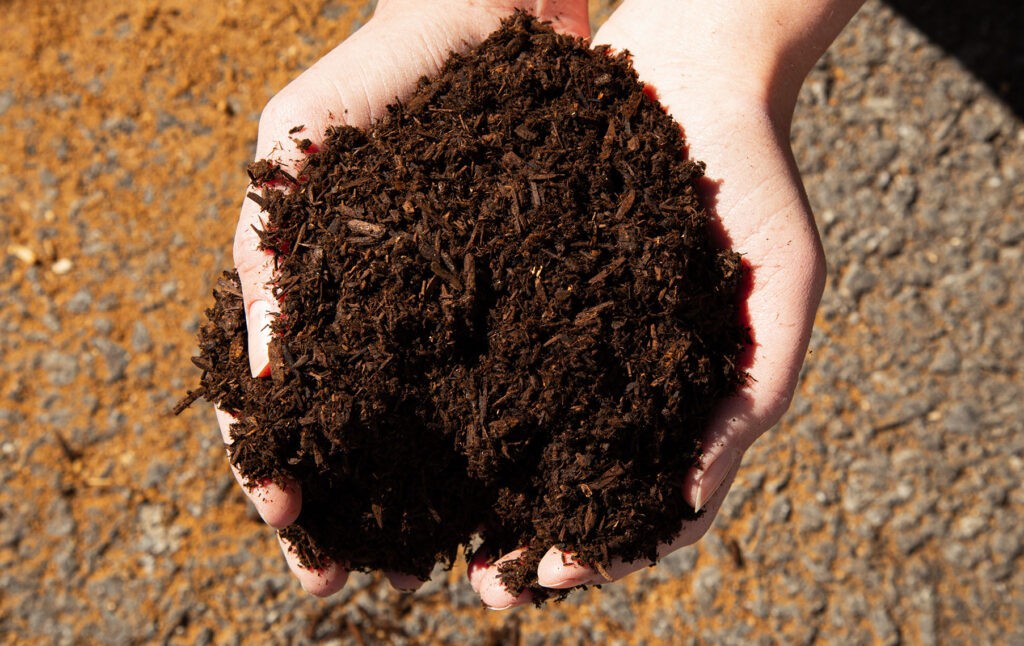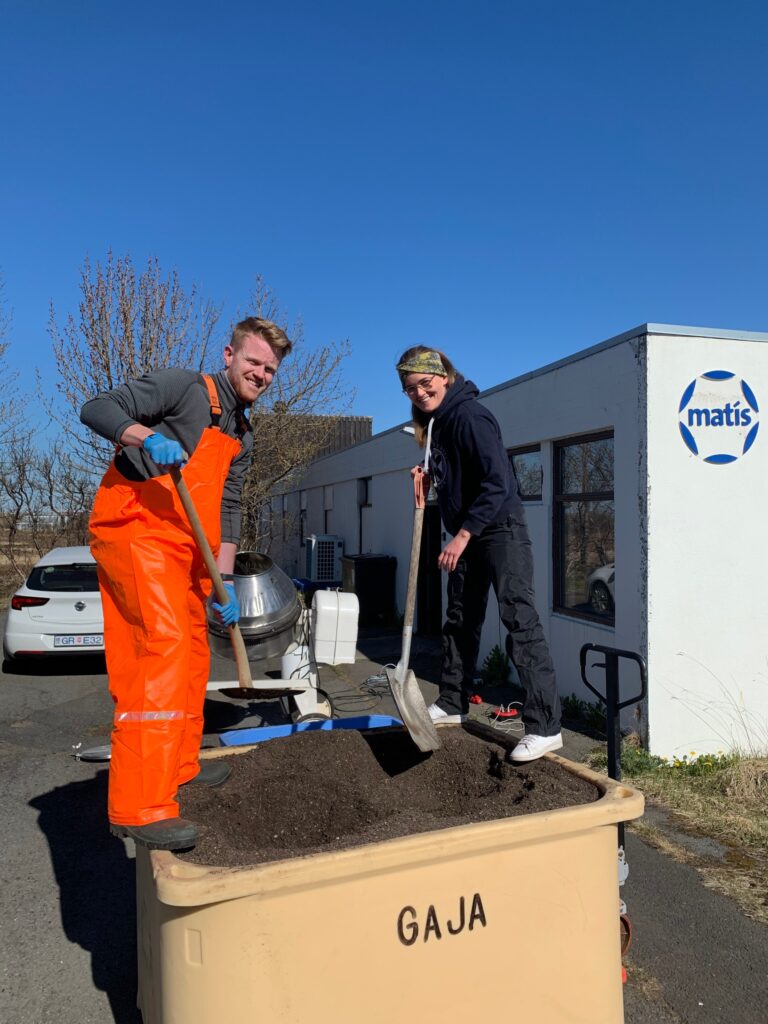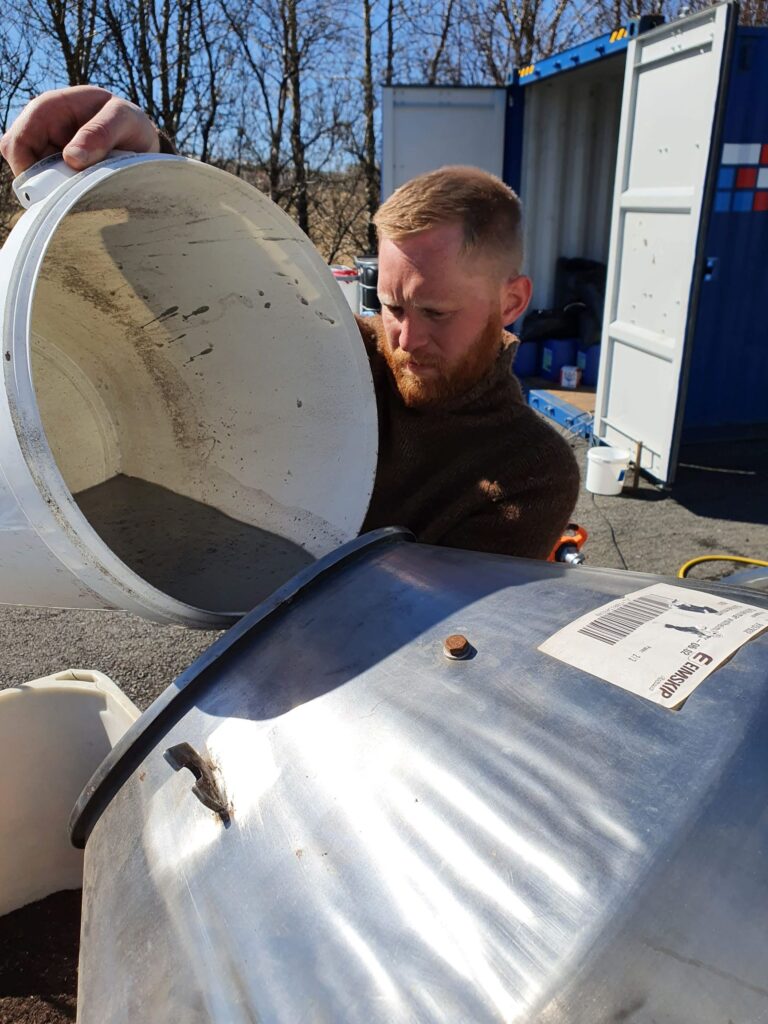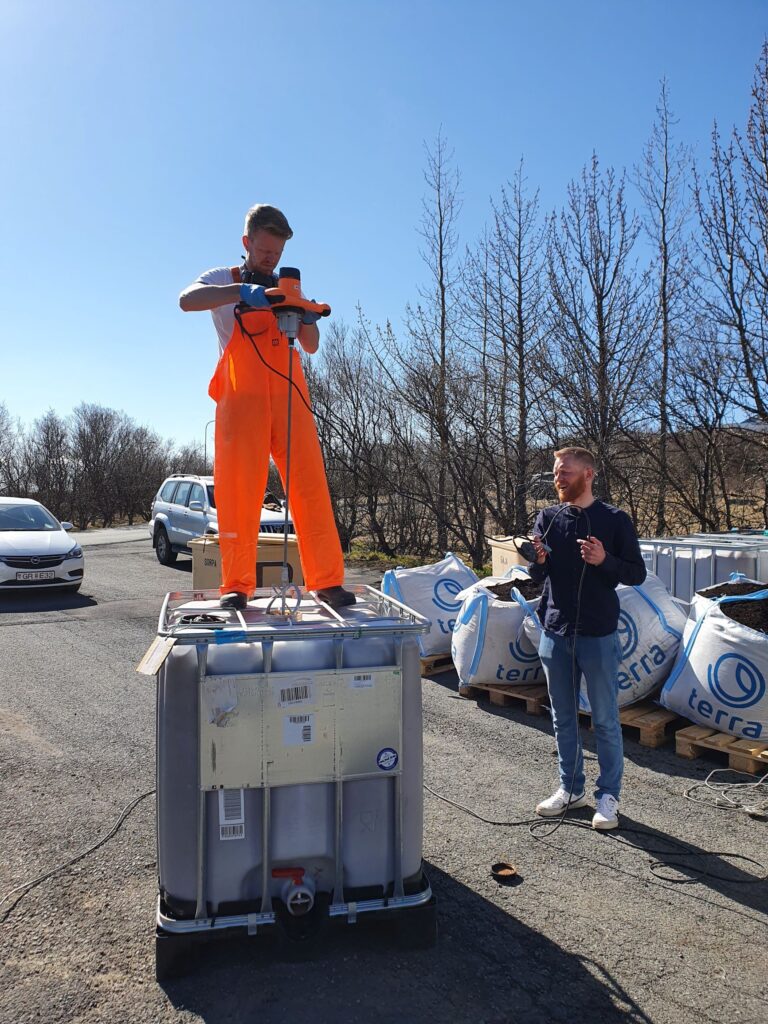Last week, preparations and raw material procurement took place for the first agricultural experiments at Landgræðslan and the Agricultural University of Iceland.
Matís employees have been strict in collecting raw materials and preparing fertilizer mixtures for the project. Sustainable fertilizer processing which was funded by the Rannís Marketing Plan. The project is working on mapping the amount of organic by-products and problem waste that is generated in Iceland with a view to using it in land reclamation and agriculture. The innovation company Atmonia is also participating in the project, as the company is developing an environmentally friendly production process for nitrogen fertilizers.
By increasing the utilization of organic raw materials from Icelandic industry and mixing them with important nutrients, such as nitrogen and sulfur, it is possible to significantly reduce the import of fertilizers and at the same time close the cycle and reduce greenhouse gas emissions.
The treatment and use of organic raw materials in fertilizers often involves a great deal of hassle, in addition to which such treatment is costly. Large amounts of raw materials are usually needed to meet the nutritional needs of agriculture and land reclamation, in addition to which the nutritional composition is not always optimal. The project will therefore seek to find ways to improve organic fertilizers and at the same time reduce transport costs and emissions.
In this summer's experiments, emphasis is placed on raw materials that have been processed from so-called problem waste, ie. slaughter waste, food licenses and sludge. Tests will be performed with aquaculture manure, human sludge, three types of compost, meat meal, bokashi, cow manure and chicken manure. The raw materials will be applied to agricultural areas this spring, on the one hand unmixed and on the other hand with added nitrogen and sulfur. Such an experiment provides an important comparison, as well as a comparison with synthetic fertilizers. The results will shed light on the quality of these raw materials, whether less raw materials can be used if the nutritional composition is adjusted and whether they are a viable option in agriculture and land reclamation.
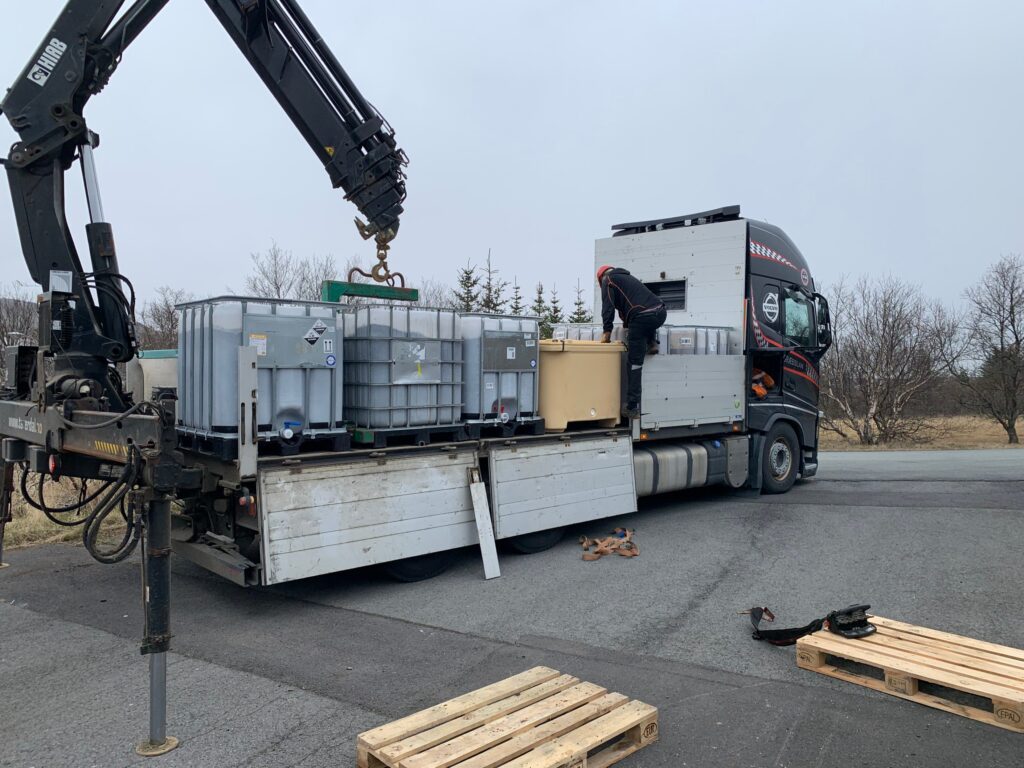
The project is for two years, but agricultural experiments will be reviewed and repeated next summer.
The project involves: Matís, Atmonia, the Agricultural University of Iceland, Landgræðslan, Hafró and Landsvirkjun.
